 End of life care: When is hospice needed?
End of life care: When is hospice needed?
 When an elderly parent or loved one nears the end of his or her life, hospice care may be a viable option. A person is eligible for hospice care when the doctor determines life expectancy to be six months or less. Also, hospice may be an option if it’s determined that further tests and treatments are no longer effective, and will instead add to or cause suffering.
When an elderly parent or loved one nears the end of his or her life, hospice care may be a viable option. A person is eligible for hospice care when the doctor determines life expectancy to be six months or less. Also, hospice may be an option if it’s determined that further tests and treatments are no longer effective, and will instead add to or cause suffering.
What is hospice?
The Hospice Foundation of America defines hospice as “a special concept of care designed to provide comfort and support to patients and their families when a life-limiting illness no longer responds to cure-oriented treatments.” Hospice care is provided by professionals with specialized knowledge of medical care — including pain management (palliative care) — and doesn’t prolong or hasten death, according to the HFA. Rather, the main goal of hospice is to offer a person suffering from chronic or terminal illness comfort and dignity. Emotional, social and spiritual support is also available for the patient and his or her family during this sensitive time.
A person’s hospice care likely takes place in a care facility, but can occur at home if circumstances allow it.
Home hospice
When home hospice care is provided, nurses are either on hand or on call 24 hours a day, seven days a week. These hospice care professionals can perform most of the procedures provided by a hospital or care facility, including administering medicine, set up IVs, do blood work, etc. Hospice professionals also keep family members informed on the progress of their loved one’s condition.
Related: Hospice: Conquering common misconceptions (via Chicago Tribune)
Physicians Choice Private Duty can help
Physicians Choice Private Duty — currently serving Omaha, Eastern Nebraska and Western Iowa — provides seniors and their families a complete understanding of the options available for those in need of hospice care and related end of life conditions.
All Physicians Choice Private Duty services are directed by registered nurses or social workers with no long-term contracts. Contact us today.
“Physicians Choice Private Duty solves the problems families face in finding home health care providers they can trust. Providers who will focus on strategies that keep parents in their homes. To learn more about our health care services, visit https://private-duty.firstcareco.wpengine.com“

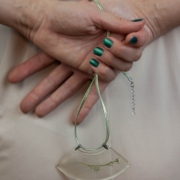

 Mary’s mother had been stubborn her entire life — with money and opinions (right or wrong), with driving routes and restaurants to eat at (a rare treat for a frugal woman like Mary’s mom). Now since dad was gone, Mary’s mother was living alone.
Mary’s mother had been stubborn her entire life — with money and opinions (right or wrong), with driving routes and restaurants to eat at (a rare treat for a frugal woman like Mary’s mom). Now since dad was gone, Mary’s mother was living alone.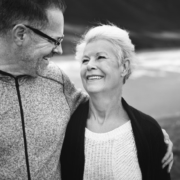

 Caring for an elderly parent can be an overwhelming experience. For one, there’s the stress related to seeing the health of someone close to you deteriorate. Two, the role reversal of caring for the person who cared for you so much of your life can be emotionally unsettling, to say the least. Not to mention the time it takes to give your elderly parent proper care — balancing work, family and friends all along the way.
Caring for an elderly parent can be an overwhelming experience. For one, there’s the stress related to seeing the health of someone close to you deteriorate. Two, the role reversal of caring for the person who cared for you so much of your life can be emotionally unsettling, to say the least. Not to mention the time it takes to give your elderly parent proper care — balancing work, family and friends all along the way.

 Kidneys play a vital in the overall health of a person at all stages of life. The bean-shaped organs that lie just below the ribcage in the back of the abdomen help purify the body of toxins as well as regulate bodily fluids such as electrolytes, stabilize blood pressure and even produce red blood cells. The elderly are at higher risk for renal failure than younger people — as the body ages so do the kidneys, especially after decades of working to cleanse the body of all sorts of impurities. Even though the early signs of renal failure can be subtle, when taking care of an elderly loved one it’s important to be aware of seemingly un-worrisome symptoms such as loss of appetite or increased/decreased urination.
Kidneys play a vital in the overall health of a person at all stages of life. The bean-shaped organs that lie just below the ribcage in the back of the abdomen help purify the body of toxins as well as regulate bodily fluids such as electrolytes, stabilize blood pressure and even produce red blood cells. The elderly are at higher risk for renal failure than younger people — as the body ages so do the kidneys, especially after decades of working to cleanse the body of all sorts of impurities. Even though the early signs of renal failure can be subtle, when taking care of an elderly loved one it’s important to be aware of seemingly un-worrisome symptoms such as loss of appetite or increased/decreased urination.

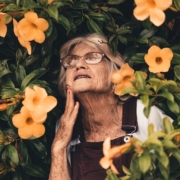

 With a record-setting high temperatures currently sweeping across large portions of the United States, heat stroke is a rising concern among people over the age of 65, who are more prone to heat stroke then younger people. According to the
With a record-setting high temperatures currently sweeping across large portions of the United States, heat stroke is a rising concern among people over the age of 65, who are more prone to heat stroke then younger people. According to the 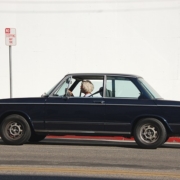
 George, 82, has been driving since he was 15. He’s driven coast to coast multiple times as a young man and always enjoyed being the designated chauffeur during family vacations and on Sunday drives to the country. George still likes to drive to the grocery and chat with the clerks. He still likes to drive to the gas station to fill up his car the second Saturday of each month. It’s second nature to him, as driving has been a part of his life since he was a teenager. The thought of giving it up simply goes against his decades-old daily routines.
George, 82, has been driving since he was 15. He’s driven coast to coast multiple times as a young man and always enjoyed being the designated chauffeur during family vacations and on Sunday drives to the country. George still likes to drive to the grocery and chat with the clerks. He still likes to drive to the gas station to fill up his car the second Saturday of each month. It’s second nature to him, as driving has been a part of his life since he was a teenager. The thought of giving it up simply goes against his decades-old daily routines.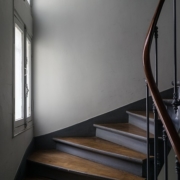

 Elderly falls can be caused by a single factor such as simply tripping on a rug, but more often than not falls are caused by a combination of things, including pathological, physiological and environmental factors. As a person ages their risk for falling increases, with statistics showing nearly a third of all people aged 65 and over falling each year. That number climbs to 40% for those 80 and over. There’s no worse feeling then finding out your elderly mother had a fall and was only able to get help after the mailman knocked on the door a day later.
Elderly falls can be caused by a single factor such as simply tripping on a rug, but more often than not falls are caused by a combination of things, including pathological, physiological and environmental factors. As a person ages their risk for falling increases, with statistics showing nearly a third of all people aged 65 and over falling each year. That number climbs to 40% for those 80 and over. There’s no worse feeling then finding out your elderly mother had a fall and was only able to get help after the mailman knocked on the door a day later.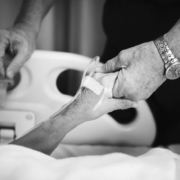
 Research by the
Research by the 
 No one ever plans on becoming ill or disabled. That’s why it’s important to have your affairs in order at any given point during your life. Even so, many elderly people who have kept their affairs (financial and otherwise) organized and up-to-date for most of their lives need to be more vigilant than ever as they enjoy their golden years because unforeseen medical complications can leave someone unable to properly care for themselves. Soon bills begin to mount up both at home and in the hospital. The person eventually passes away and their kin are left with bills, the funeral and the estate to deal with — all in the midst of mourning.
No one ever plans on becoming ill or disabled. That’s why it’s important to have your affairs in order at any given point during your life. Even so, many elderly people who have kept their affairs (financial and otherwise) organized and up-to-date for most of their lives need to be more vigilant than ever as they enjoy their golden years because unforeseen medical complications can leave someone unable to properly care for themselves. Soon bills begin to mount up both at home and in the hospital. The person eventually passes away and their kin are left with bills, the funeral and the estate to deal with — all in the midst of mourning.